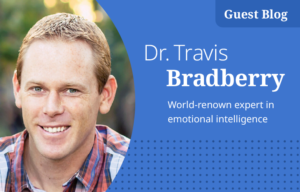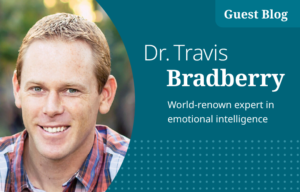Advice for College Students and Graduates: Get a Head Start on Job Hunting
March 27, 2019
As graduation season approaches, many college seniors are feeling the pressure of landing a job and entering the workforce. For first-time employees, beginning the process of job hunting can seem like a daunting task — especially when there are still exams to take and term papers to write.
To make this process a little easier, EBSCO for Corporate has compiled a few easy, actionable tips for students who are looking to get a head start on their job hunt.
Step One: Explore Your Career Options
While some college majors offer a clear-cut career trajectory, many do not. If you find yourself unsure of your career path, begin with brainstorming — search diverse career options that match your strongest skills and attend job fairs. Use LinkedIn to see what people with your degree are doing now and even ask your friends and family what role they picture you in.
Once you’ve compiled a list of career options, analyze which ones fit with your own personal values. Ask yourself questions such as, would I like to work in an office, or would I prefer a non-traditional setting? Do I want a nine-to-five job, or am I looking for something more flexible? What industries excite me? How important is job security to me? What salary range is acceptable? Your answers will help to refine your list to include all practical career options.
Step Two: Take Inventory of Your Network
As a college student, you should be constantly working on building your professional network as you have the unique ability to meet and work with many people. In fact, you’ve probably made several connections that could help with your career already.
Before graduation is the perfect time to take inventory of your network. Think about every activity you’ve been involved in, from classes to part-time jobs and internships. Reach out to professors, managers, coaches, colleagues, or anyone else you’ve interacted with in a positive and meaningful way. Briefly update them on relevant aspects of your life and explain that you will be job hunting soon, asking if they would be willing to be your reference. This way, you will not be scrambling to find references when the time is right, and they won’t feel blindsided when you reach out to them.
As a college student, you should be constantly working on building your professional network as you have the unique ability to meet and work with many people.
Step Three: Update Your Resume
Your resume is one of the most critical aspects of job hunting. Unfortunately, as a college student, you probably do not have years of experience in your desired field. However, you can leverage other experiences and activities to showcase your skills. Be sure that your resume highlights measurable accomplishments. For example, your tutoring skills may have helped a student’s grade rise from a D to a B, or your volunteer project helped feed 200 homeless people in your neighborhood. This will show hiring managers that you have an analytical and action-based mindset — something that is important in any industry.
Step Four: Visit Your College Career Center
Although job hunting can be difficult, remember there is help available. Your college career center is an invaluable tool for any college student, but especially graduating seniors. Schedule time to meet with a career advisor from your college. Explore all programs and services offered — whether they include career exploration, job search assistance, resume and cover letter writing, mock interviews, or more. Landing a job after graduation is much easier with professionals helping you along the way.
Step Five: Brush Up on Your Soft Skills
Throughout college, you’ve acquired technical or “hard skills” specific to your major. However, you may need to improve your soft skills before you are ready to enter the workforce. Soft skills are the personal attributes, personality traits, inherent social cues, and communication abilities needed for success on the job. These include skills such as time management, communication, teamwork, emotional intelligence and more.
Like hard skills, soft skills can be learned. EBSCO’s Accel5 features book summaries and videos on dozens of critical soft skills from top business leaders. These lessons only take a few minutes a day to complete — perfect for your busy schedule. Begin with our free seven-day trial to see if Accel5 is right for you.



